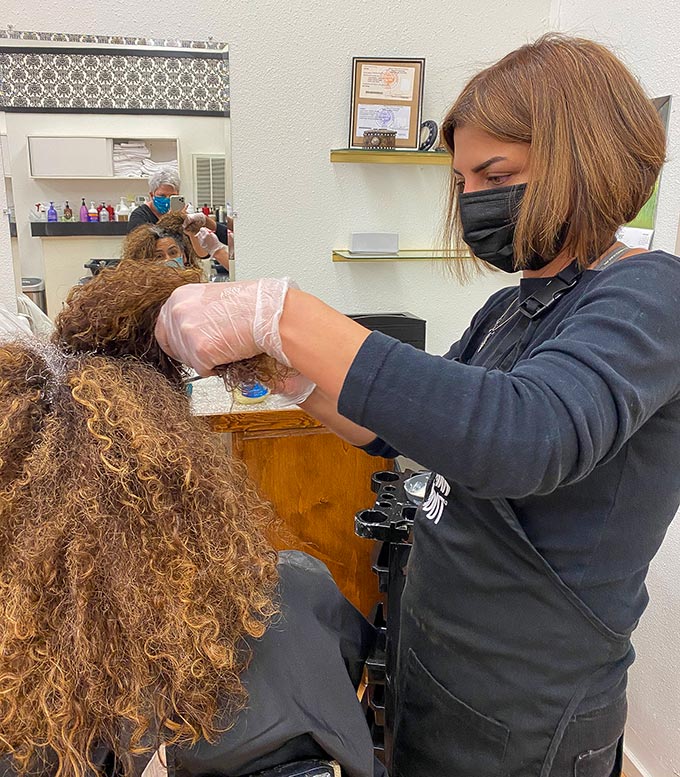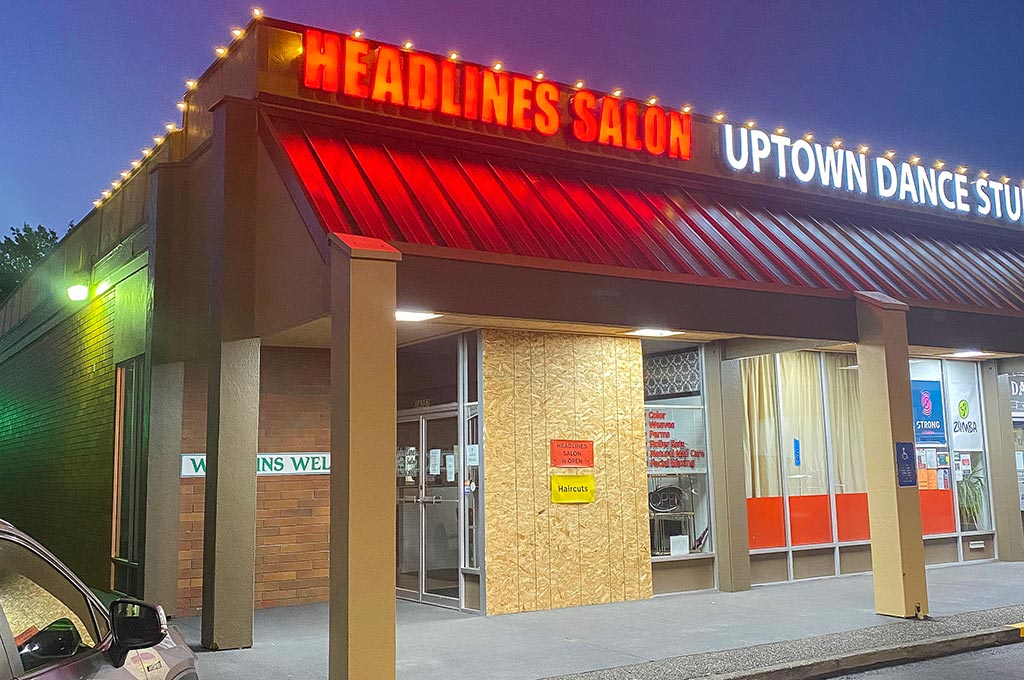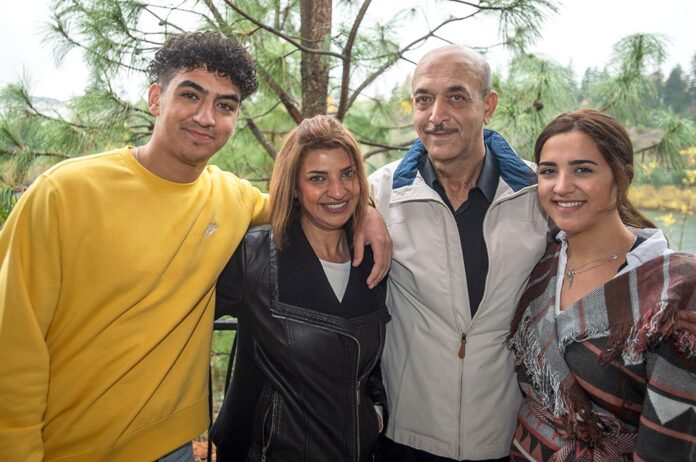The final straw for Hosien Zainab was his daughter Razan’s arrest by the Mutawa, the Saudi Islamic religious police.
But in a funny twist of fate, that encounter with fundamentalist law enforcement ultimately opened up a path for Zainab’s family to emigrate to the United States, where they now own two small businesses and are thriving members of the Tigard and Beaverton communities. None of that, however, was on their minds five years ago.
It was 2015, and Razan had been taking her regular English language classes at the British consul in Riyadh, the capital of Saudi Arabia. When her lesson finished for the day, Razan accepted an offer of a ride back home from one of her father’s coworkers. The catch? The coworker was not a family relative. Just being in the same car with him was enough for Razan to be arrested by the Mutawa at a checkpoint just outside the foreign quarter that housed the consul.
For a Saudi citizen this would have been a problem. But for Razan, a Palestinian by birth and a foreign resident of Saudi Arabia, it was a much larger issue. Not only can the Mutawa ruin a person’s life, in the case of foreigners, they can also easily be deported.
“I don’t like talking about it,” said Razan, who is now 23 years old. “At the checkpoint they took our ID, and they said he’s not related to me. They gathered us around, took us out of the car, I was dragged out, they took us to a police station and separated us to see if we were dating or together not in a family way.”
At the police station, Razan underwent interrogation during which she could hear the yelling of other women enduring similar treatment. Fortunately, her father was able to convince the Mutawa to release his daughter prior to a scheduled date with an Islamic court. But the experience also accelerated plans to leave the country.
“I don’t like the religious judges too much, so I decided no, I cannot go there,” said Hosien, who is now 62. “If we go there they will give us a big problem.”
Off to Oregon
After living in Saudi Arabia as a foreign guest worker since 1972, and seeing his own father be expelled from the country over an issue with a work visa, Hosien was not willing to risk the same thing happening to his family. Fortunately, Hosien’s brother already lived in Oregon. So he decided to risk everything he owned and apply for asylum in the United States.
“I remembered what happened to my father,” he said.
He also possessed a valid tourist visa from previous visits and immediately began preparations. The family sold everything they could, purchased plane tickets and left within weeks of Razan’s arrest.
That was how Hosien, his wife Rawiya Abu Kaood, now 51, Razan and their youngest son Khaled, who is now 17, wound up on a flight out of Riyadh bound for the United States. Once the family arrived they applied for asylum based on the persecution of their children. That lengthy process remains in limbo. But for the time being they are allowed to remain in the U.S., where they live in Beaverton and have created a thriving life for themselves.
With his brother’s help, Hosien purchased a service station in Banks in rural Washington County, where he has become a community fixture.
Meanwhile, Rawiya recently realized a lifelong dream on Oct. 1 when she and Hosien purchased Headlines Beauty Salon, located at 14357 S.W. Pacific Highway in Tigard.
The purchase of the salon came after a brief exchange of messages with the previous owner through Facebook Marketplace. For Rawiya, it not only was the realization of her dream, it meant an end to working 10-hour shifts at Hartmann & Forbes, a window and wall-covering manufacturer in Tualatin.
“It was hard work,” she said.
Establishing New Roots
Back in Saudi Arabia, Rawiya had established her own salon. But running that business also required an official sponsor, who retained control over the business, including finances. So when her sponsor decided one day to simply take the proceeds of the business and close it down, Rawiya had no recourse. She assumed her dream was dashed.

“She just took our money,” she said.
“If you’re a foreigner you can’t do anything,” Hosien said. “It’s illegal to put a business under your own name. In Saudi we can’t own a home either, or only under someone else’s name. And if they want it they can take it.”
When the family arrived in the U.S., however, these things were not on their minds. They simply tried to establish themselves in the local community as they waited for a resolution to their asylum case.
Razan had already graduated from high school and enrolled at Portland Community College. Khaled, meanwhile, enrolled at Conestoga Middle School in Beaverton and now is a junior at Mountainside High School.
Razan attended classes at PCC for three years, but eventually received a scholarship at Portland State University, where she is now enrolled in the school of architecture.
“It was difficult,” Razan said. “My friends from PCC were Hispanic and we couldn’t speak English, so we talked and tried. It was funny and it was a nice experience.”
Khaled, meanwhile, also made friends with fellow immigrants. They both gradually grew accustomed to the vast cultural and linguistic differences in their new country.
Rawiya, meanwhile, worked at the window factory for over three years while also studying for the cosmetology license that would enable her to finally get back to doing what she loved. After overcoming difficulties learning English and one failed licensing exam, she gained her certification and took a job at the JC Penney salon at Washington Square in 2019.
Unfortunately, the COVID-19 pandemic saw her lose that job earlier this year. Instead of applying for unemployment benefits, however, she was quickly able to return to her former job at Hartmann & Forbes, starting the day shift at 4:30 a.m. each morning.
That is, until September, when she and Hosien saw an ad on Facebook Marketplace advertising the Headlines Beauty Salon for sale. They had already been considering taking out a business loan to purchase a salon, so the timing was perfect.
“I was taking a shower, and I got upstairs to dress,” Rawiya said. “When I go back down (Hosien) was on the Facebook and found a salon on marketplace. The next day we went to the salon in the morning.”
Along with her business partner, Tracy Manning, they visited Headlines and decided it would work. They put down a $500 deposit. And on Oct. 1 they were able to pay for the rest of the business out of their savings and call it their own.

“I was shocked,” Rawiya said. “Is my dream coming true now? And, there is no sponsor. I can do all of my ideas, and I have a lot of ideas.”
With his business experience, Hosien took over licensing, tax, accounting and marketing duties, while Rawyia worked out the operational details.
“I’m just focusing now on improving this place, I have my friends, she (Manning) is working with me now,” she said.
Rawiya specializes in hair coloring, makeup and keratin straightening treatments, which are particularly popular among Middle Eastern women. Several additional stylists are working at the shop as independent contractors and specialize in various services.
“We’re debating now about making a waxing room,” Hosien added.
The family is extremely grateful for the opportunities they now have in front of them. In spite of the challenges, however, the family is confident they will succeed. They are awaiting an asylum hearing in March, and with a successful outcome will be able to obtain a more permanent status in the U.S.
“It’s important that people know how much we love life here,” Rawiya said. “We feel blessed to live in this country.”






















